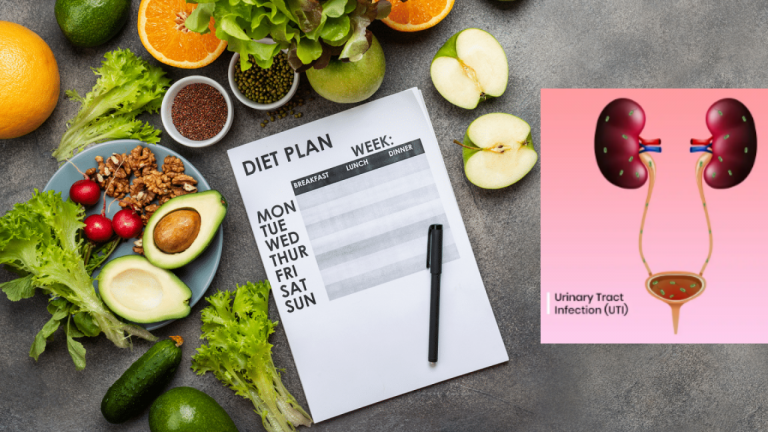DIET PLANNING FOR THYROID

When it comes to thyroid health, a well-balanced diet can play a significant role in supporting your thyroid function. While I can provide some general dietary recommendations, please keep in mind that it’s important to consult with a healthcare professional or a registered dietitian who can provide personalized advice based on your specific condition and needs. Here are some dietary guidelines that may be helpful for supporting thyroid health:
- Iodine: Adequate iodine intake is crucial for the production of thyroid hormones. Good sources of iodine include seaweed, iodized salt, fish, dairy products, and eggs. However, excessive iodine intake can also be detrimental, so it’s important to strike a balance and not overconsume iodine.
- Selenium: Selenium is a mineral that supports thyroid function and helps to convert inactive thyroid hormone (T4) to the active form (T3). Brazil nuts, seafood, organ meats, and whole grains are good sources of selenium.
- Nutrient-rich foods: Include a wide variety of nutrient-dense foods in your diet to ensure you get all the essential vitamins and minerals necessary for overall thyroid health. This includes fruits, vegetables, whole grains, lean proteins, and healthy fats.
- Goitrogens: Some foods contain compounds known as goitrogens that can interfere with thyroid function, particularly when consumed in large amounts or when the thyroid is already compromised. Examples of goitrogenic foods include cruciferous vegetables (such as broccoli, cauliflower, cabbage, and Brussels sprouts), soy products, millet, and spinach. Cooking these foods can help reduce their goitrogenic properties.
- Gluten: Some individuals with thyroid conditions, such as Hashimoto’s thyroiditis, may benefit from avoiding gluten. Gluten is found in wheat, barley, rye, and some oats. However, it’s important to note that not everyone with a thyroid condition needs to avoid gluten, so consult with a healthcare professional to determine if this is necessary for you.
- Balanced macronutrients: Ensure you’re getting an adequate balance of carbohydrates, proteins, and fats. Carbohydrates provide energy, proteins are necessary for tissue repair and hormone production, and healthy fats support hormone function. Include sources of healthy fats like avocados, olive oil, nuts, and seeds.
- Limit processed foods and refined sugars: Processed foods and foods high in refined sugars can contribute to inflammation and negatively impact overall health. Opt for whole, unprocessed foods whenever possible and limit your intake of sugary snacks and beverages.
Types of Thyroid
•Hypothyroid -underactive thyroid gland is reversible by following proper lifestyle changes. And we check this with TSH, T4, and T3 levels and all these 3 are important.
•Hyperthyroid –overactive thyroid gland is reversible too
•Hashimoto’s –this is autoimmune. we need to check TPO (thyroxin peroxidase test) and ATG (anti-thyroid globulin )levels where the issue is with gut-chronic diarrhea, and chronic constipation, in this there are holes in the gut lining and the food particles leach out of these holes to the bloodstream and then they resemble thyroid gland and the body’s immune fn start attacking thyroid gland ATG goes up
Parameters or Factors to Focus On While Planning Diet for Thyroid
•Along with thyroid, we need to look into liver health as well as T4 to T3 conversion taking place in the liver.
•Poor gut health is responsible for hormonal imbalance
•Poor diet is one of the factors as the diet nutrient deficient
•Stress is one of the factors due to which the adrenal gland produces more cortisol hormone in higher amounts. We need cortisol for various functions but in higher doses, it decreases thyroxin, decreases DHEA –The immunity hormone and decreases the production of the sex hormone testosterone. Higher cortisol levels also create oxidative stress on the thyroid gland
•One should not eat too much raw cruciferous vegetables as these are high in goitrogens and impact the thyroid gland so these cruciferous vegetables should be steamed or cooked
•Oil is again the most imp factor, one should not use refined oil, PUFA Which is found in processed, frozen foods and refined oils. These blocks the production of thyroxin and communication between cell and hormone which is most important.
•Low thyroxin levels= low cell communication= low conversion of T4 to T3 and hence cells store more fat
•Low thyroxin= high estrogen= low protective hormone progesterone so you will face issues like not conceiving, PCOS
•Low thyroxin= high cholesterol in the body
•To convert fat to energy we need T4 and T3 which generate enz in the liver and this conversion is important, so bad quality fat also affects this conversion.


Diet Planning In Hypothyroid
•Calculate BMI
•Calculate TDEE
•Divide macros in the ratio:
#Carbohydrates can be 50-55%
#Proteins can be 20%
#Fats can be 25-30%
The NHS Eatwell Guide recommends you should try to:
• Eat at least 5 portions of a variety of fruit and vegetables every day
• Base meals on higher-fiber foods
• Have some dairy or dairy alternatives
• Eat some beans, pulses, fish, eggs, meat, and other protein
• Choose unsaturated oils, and eat them in small amounts
• Drink plenty of fluids (at least 6 to 8 glasses a day)
• Should have a balanced diet
• MUFA fats should be included in the diet
Micronutrients For Thyroid Health
•Selenium –brazil nuts, almonds, walnuts, pumpkin seeds, and sunflower seeds are good sources
•Adequate iodine –cheese, milk, iodized table salt, saltwater fish, seaweed, whole eggs
•Vitamin A
•Vitamin D-10mcg each day.
•Zn
Requirements
•Vitamin A The Dietary Reference Intakes (DRI) for vitamin A for adult men and women is 900 mcg RAE
•Vitamin B1-The recommended daily intake (RDI) for adults over age eighteen is 1.2 mg/day for men and 1.1 mg/day for women. This is for healthy individuals. Due to absorption issues, those with thyroid conditions may need more than the RDI
• Boron -This mineral may have positive effects on the thyroid. One animal study showed boron was able to enhance the secretion of the T3 hormone. There is no recommended intake of boron but the World Health Organization (WHO) estimates an acceptable range for adults is 1 to 13 mg per day
• Fiber-25-35 grams/ day
• Iodine –50-99 mcg of iodine per day.
• For Hashimoto’s-less than 100 mcg a day for one to three months
• Selenium –200-400 mcg/ day
• Zinc –50% higher than RDA
Foods rich in selenium include:
• Brazil nuts
• Tuna
• Shrimp
• Beef
• Turkey
• Chicken
• Ham
• Eggs
• Oatmeal
• Brown rice
Foods rich in zinc include:
• Oysters
• Beef
• Crab
• Fortified cereals
• Pork
• Chicken
• Legumes
• Pumpkin seeds
Vitamin A foods:
• Carrots
• Spinach
• Sweet potato
• Cantaloupe
• Broccoli and broccoli sprouts
• Mango
• Liver
• Apricot
• Pumpkin
• Parsley
• Salmon
• Tuna
• Grapefruit
• Egg
• Turnip greens
• Beef
• Brussels sprouts
• Asparagus
Boron foods
• Apples,
• Prunes,
• Grapes,
• Apricots,
• Dates, and
• Honey
Foods that contain goitrogens are typically green cruciferous vegetables, including:
• Collards
• Brussels sprouts
• Russian kale
• Broccoli
• Broccoli rabe
• Cauliflower
• Cabbage
Foods that contain soy include:
Soy milk
Soy sauce
Edamame
Tofu
Miso
Medications And SupplementsWith The Body’s Absorption Of Thyroid Medication:
• Antacids or acid reducers
• Milk and calcium supplements
• Iron supplements
• High-fiber foods, such as bran flakes, fiber bars, and fiber drinks
• Foods high in iodine
• Soy-based foods
Don’ts
• Avoid soy products as they interfere with iodine entry into the thyroid gland, soy may also inhibit the action of thyroid hormones in the organs of the body.
• Avoid raw cruciferous vegetables, steamed or cooked forms of these can be taken once a week as these have goitrogens
• Avoid processed packaged food
• Stop using vegetable oils-soya bean, sunflower-responsible inflammation, and cell communication
• Do not over exercise-do light workouts, rest and recover, do not do cross fit so that inflammation reduces
Foods To Be Included And Are Super Beneficial
• Amla
• Banana
• Coconut
• Cold-pressed virgin coconut oil
• Triphala
Sample Diet Plan For Hypothyroid


Note:
• The highlighted ingredients or food items and thyroid-protective foods help in balancing the hormonal health
• The salt used in the diet is sendha salt and rock salt which supplies 65-75 mcg of iodine
• Bedtime concoction with turmeric root and cold-pressed virgin coconut oil will boost the metabolism, reduces inflammations, and nourishes the thyroid gland
Hyperthyroidism
• Overactive thyroid gland
• Thyroid gland produces too much of the hormone thyroxin.
• Hyperthyroidism can accelerate your body’s metabolism, causing unintentional weight loss and a rapid or irregular heartbeat
• The micronutrient needs almost remain the same as in RDA but the energy needs are increased in these patients as they are hypermetabolic state.








